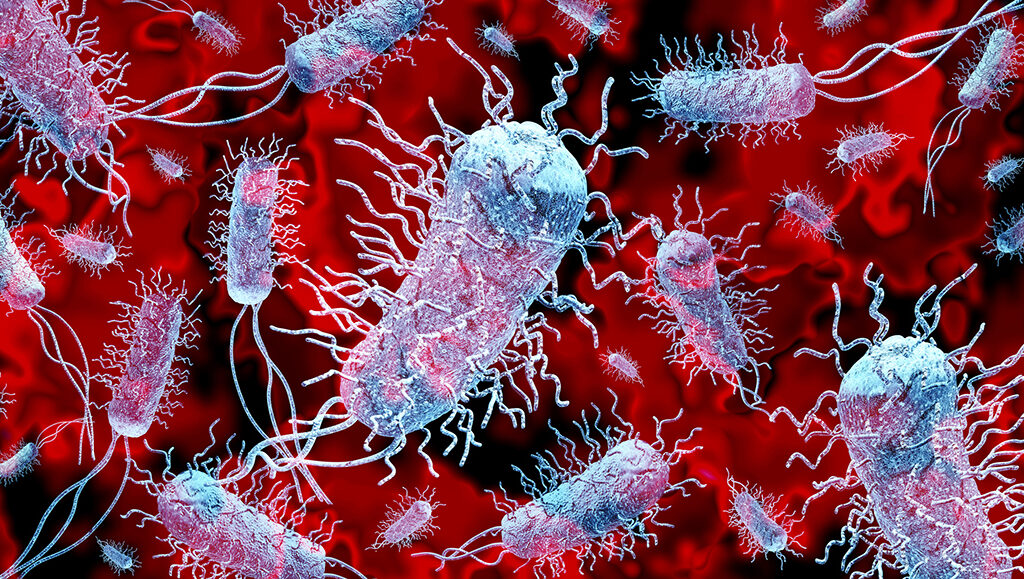California State University, Northridge microbiologist Cristian Ruiz Rueda has dedicated his career to developing novel ways of preventing and treating infectious diseases caused by bacteria resistant to multiple antibiotics.
To do that, Ruiz Rueda said, he needs to understand how the metabolic network of bacteria — a complex set of biochemical reactions that determine the physiological properties of a cell — functions together with their export machinery to protect bacteria from antibiotics and maintain metabolic balance.
“And the key to that is understanding how bacteria coordinate their responses to toxic molecules, stress and changes to their environment,” he said. “If we could understand that we could develop better treatments for antibiotic-resistant infections to ensure people remain healthy.”
Ruiz Rueda has recently been awarded $1 million, four-year grant from the National Science Foundation to study antibiotic resistance, efflux and metabolism on bacteria, which will take him a significant step closer to his goal.
What makes the grant particularly exciting to Ruiz Rueda, who teaches in CSUN’s College of Science and Mathematics, is that part of his proposed research will be integrated into his upper division Biol 417/L microbial physiology class to help enhance the scientific education and training of undergraduate and graduate students at CSUN and expand the number of students from all backgrounds with direct access to hands-on research.
“The students will have an opportunity to participate in experiments interconnected with those being done in the research lab, thus helping us getting closer to the answers we are looking for, while they are also learning about what it takes to design and conduct scientific research.”
Ruiz Rueda’s research focuses on understanding gene regulation in bacteria, specifically “how they utilize one of their tools called multi-drug efflux pumps — which is a mechanism that they have in their tableau that allows them to expel toxic molecules like antibiotics out of the cell — as a way for the bacteria to defend themselves,” he said.
Ruiz Rueda is studying the protein AcrR, which he called a “key gene regulator that simultaneously senses external toxic molecules and metabolic stress and then controls how many multidrug efflux pumps are produced to remove potentially toxic molecules or molecules that are accumulating and blocking the normal metabolic pathways of a cell.”
While doing all of that, Ruiz Rueda said, AcrR also controls motility — the ability of an organism to move independently using metabolic energy, so the cells can escape to a different environment — and metabolism to cope with toxic molecules and maintain metabolic flow.”
“The vast majority of metabolic genes directly regulated by AcrR and cellular metabolites that control its function remain unknown,” he said. “This project is expected to close this knowledge gap by uncovering the network of metabolic pathways sensed and directly regulated by AcrR.
“These contributions are important because they will transform our knowledge of how bacteria maintain metabolic balance and adapt to hazards, metabolic stress and environmental changes,” Ruiz Rueda said.
That knowledge, he added, is important for treating illnesses and keeping people healthy.
“For example, if someone is sick, you give them antibiotics,” Ruiz Rueda said. “We know that the bacteria are going to respond to try to sort of weather out the storm by for example pumping out these antibiotics. Many times, if they can survive for a while, they can accumulate more mutations and become more resistant over time. But there are also “good” bacteria, like the bacteria in our gut, that help us in multiple ways such as producing vitamins or competing with pathogens.
“If we can understand how their metabolism functions and is regulated, we can find ways to encourage the “good” bacteria to thrive, while preventing the ‘bad’ bacteria from mutating and becoming resistant to treatment.”
Like this:
Like Loading...
Related





 Tweet This
Tweet This Facebook
Facebook Digg This
Digg This Bookmark
Bookmark Stumble
Stumble RSS
RSS
































REAL NAMES ONLY: All posters must use their real individual or business name. This applies equally to Twitter account holders who use a nickname.
0 Comments
You can be the first one to leave a comment.